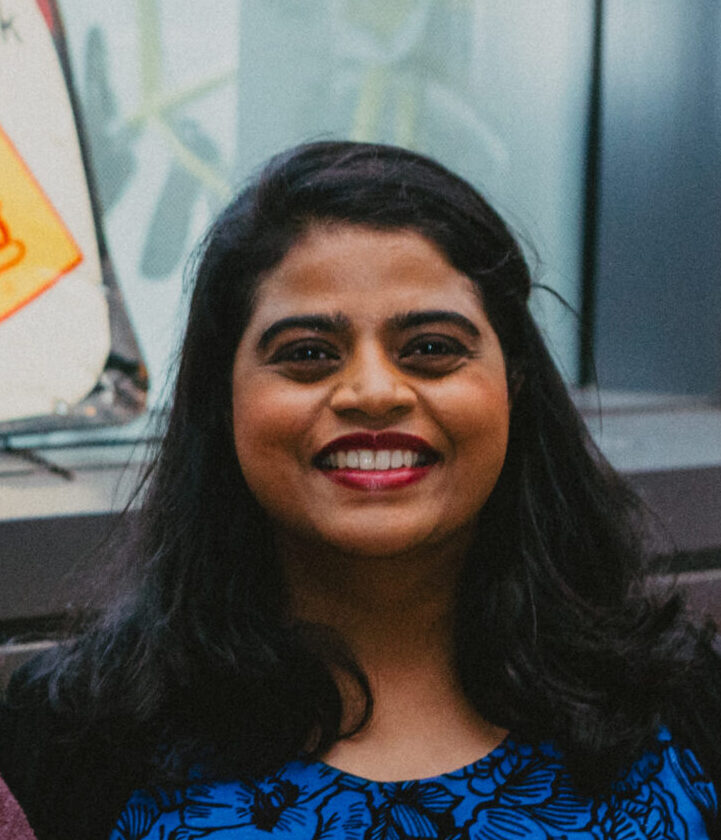
Nandini first heard of Sheena’s Place back in 2018, when a roommate thought she might have symptoms. At the time, she recalls being in complete denial about needing support. But in the fall of 2020, she heard we were starting a virtual BIPOC Support group, and this piqued her interest.
In BIPOC Support, folks have a safe space to discuss how race and culture can impact their relationships with food and their bodies.
Through regular group sessions, Nandini discovered she’d been struggling with disordered eating since childhood. With help from others in the group, she was able to begin unpacking the nuances of being in her body, and her identity, and how these contributed to her eating disorder experiences.
Nandini continues to attend our BIPOC Support group and hasn’t missed a day in the last four years. It’s where she feels most comfortable. Being part of a group that looks at intersectionality closely, honours her social location and all parts of her identity is important for her recovery. But she’s also stepped outside her comfort zone to try many other groups and workshops.
For example, with some encouragement from a facilitator, she has tried our virtual art therapy groups, where she discovered she doesn’t always need to use her voice to express herself. Rather, she can use various forms of art media for self-expression. Three seasons later, and she’s still coming to the group.
And, in our Big Time Body Liberation group, Nandini recalled it was the first time she’d critically thought about oppressive forces. This group helped her realize you can be “fat and worthy, and that fat bodies are desirable.” Having a community of folks who discuss their struggles, but who also routinely celebrate their fat bodies has had a significant, lasting and positive impact on her.
Nandini also pushed nerves aside to participate in one of our in-person drumming workshops. She fondly describes the experience:
“To take myself out of the head and drop it below the neck, and to use the rest of my body in this somatic way where I don’t have to force mindfulness into the process…where it just happens naturally as a result of the body enjoying the process, has been eye-opening. I’d go to these drumming sessions every week if offered.”
The Sheena’s Place community is strong, supportive and inclusive. And it is always here to help those in need.
“The shift from powerlessness to purpose has been incredible as it relates to being part of a community,” said Nandini. “I could do some of the work on my own, but to maintain this new learning, I need a community.”
